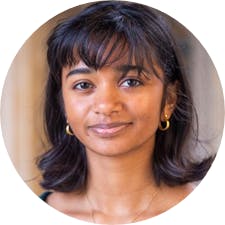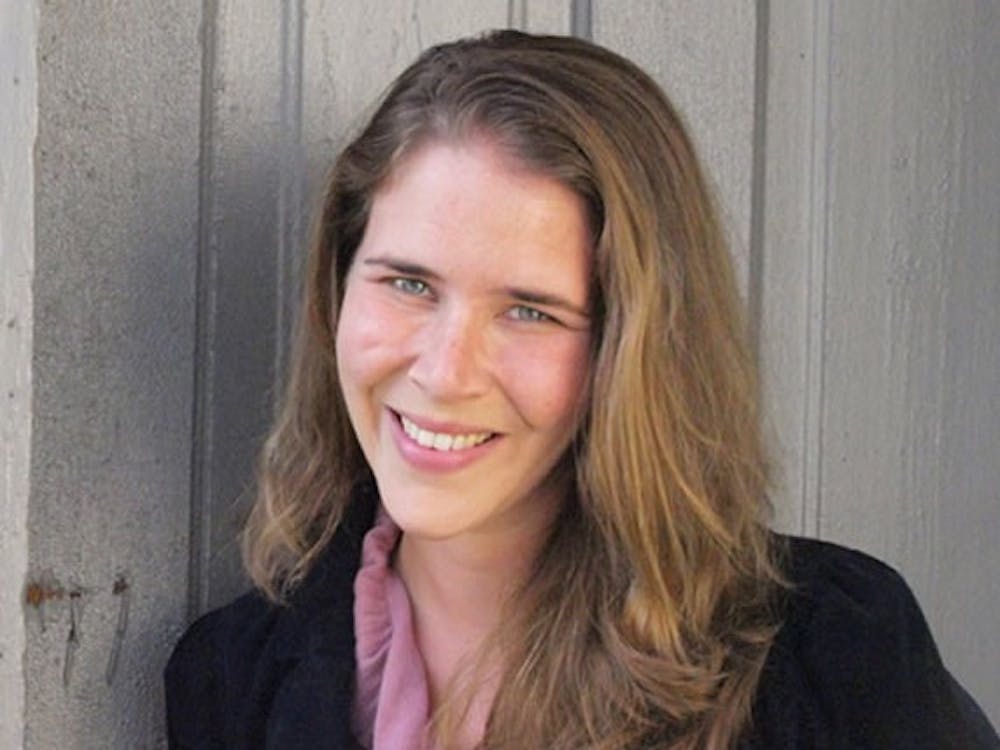Kathryn Lester-Bacon, Trinity ‘05, has returned to Duke as the new director of religious life at Duke Chapel. She sat down with The Chronicle to outline her goals for the role and how Duke has changed since she was in the Chapel Choir. This interview has been edited for length and clarity.
The Chronicle: What does a religious life director do?
Kathryn Lester-Bacon: I work on connecting the religious life staff who are scattered across all of campus, so I am kind of pulling them all together as well as overseeing some interfaith initiatives that were already started before I came. I am really working on digging deeper with them and working on how to support and strengthen them, like the Eruditio et Religio living learning community and a couple of other programs that are in the works.
I’m trying to share how religious life can be a resource to other areas of campus and how we can work alongside what is happening and strengthen each other and broaden each other’s vision.
TC: What was your path to this position? What did you do previously that led you here?
KLB: I was a student here, so it's already a place that's lodged very deeply in my heart. As a student, I spent a lot of time around the Chapel. I was in the Chapel Choir. I was in the presbyterian campus ministry group.
Young adults as a population within religious institutions are not really understood because the demographics have dramatically changed. The people who are doing the ministry with that population just feel like they're on their own a lot. They're kind of out there, particularly on a college campus that is its own ecosystem. I really want to support them and tell the stories of what they're doing and amplify their voices, particularly non-Christian voices. Even in this undeniably Christian place, we say, "No, no, this is deep within our identity to say, ‘welcome, you have a place here.’”
TC: As a Duke student, what did you find special about the religious life community?
KLB: I loved my time here. I loved nerding out. I loved digging deep. I also got so overwhelmed by just being around other people who are 18- to 22-year-olds and who were stressed about the exact same things I was at the exact same time of the year.
So, when I was part of religious life, particularly the Chapel Choir, I was getting to know people outside of that age bracket, people from Durham as well as people from graduate school, different departments, but also just people from the area. That really satisfied a hunger. By the time when I came back, there were people I still knew in this area. And that's what keeps drawing me back. The people that I met through religious life are people that I still have relationships with when I return.
TC: What are the deficits that you see in religious life right now that you're trying to fill in your position?
KLB: There are historically a lot more Christian groups, which makes sense in the history of the campus, and that's valuable. But also, how do we amplify the work that Hindu Chaplain Madhu Sharma is doing part-time? And our Buddhist Meditation Chaplain, Francesca Morfesis, is part-time.
How do we really work to come alongside them and amplify them and amplify the work that they are doing on campus? I think that's a big deal. The visibility is a tricky one. We have a chapel that is immense and you cannot avoid it. There are a lot of people that are doing work that is not as visible, and so how we make their work more visible is an ongoing challenge.
TC: In that regard, what is the five-year, 10-year vision?
KLB: To really grow the Eruditio et Religio living learning community as a supportive, enlivened, emboldened group of students who are asking good, tough questions that also illuminate their own religious identities. There are a couple of programs that we're talking about with different departments and ways of resourcing the Chaplain staff we have, the religious life staff, to be more present on campus and to have their skillsets more visible and accessible across campus in different ways. I would love it if students know that those resources were available.
Graduate students are all on their own worlds. They are not cohesive like the student body can be, so some of them will go years without realizing that there are religious life resources for them, so I really want to let graduate students know that we're here for them, too. So, over the five years, amplify and make visible and accessible what we have, what's already going on.
TC: How have your first two months on the job been?
KLB: Duke is remarkable because they have such fascinating conversations with high-flying, excellent standards and they have allowed religious life to stay a part of that and to be an integral part of that in some really interesting ways. That's the kind of thing I've really been trying to explore the last two months and looking forward to my next five years. When new things happen at Duke, they've included religious life in the conversation for the most part.
Come and see if you don't know what religious life is available. It's a real gift to be able to explore it. There's such a range of dedicated beautiful people that are doing dedicated beautiful work and caring for the wholeness of students. Come talk to me, and I’d love to connect you with different people—no matter what your faith background or lack thereof.
Get The Chronicle straight to your inbox
Signup for our weekly newsletter. Cancel at any time.

Preetha Ramachandran is a Trinity senior and diversity, equity and inclusion coordinator for The Chronicle's 118th volume. She was previously senior editor for Volume 117.

